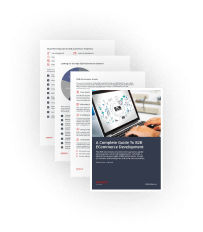Enterprise solutions are growing during the recent years as more businesses adopt technology to improve their operations and stay competitive. Normally, companies and organizations that require a scalable and robust software infrastructure are looking for more flexible software. This includes businesses in various industries such as finance, healthcare, and retail, among others. Enterprise platforms provide features such as security, data management, and workflows that enable companies to streamline their operations and make data driven decisions based on analytics insights. Here, we’ll tell you more about enterprise software and how you can use it to enhance your business.
What Is an Enterprise eCommerce System?
An Enterprise eCommerce system is a software solution that enables businesses to conduct online transactions with customers and partners. It is typically a large-scale system that can handle complex business operations and data management.
Some of the key features of an enterprise eCommerce system include:
- Comprehensive product catalog management
- Advanced pricing and discounting capabilities
- Robust inventory management and order fulfillment tools
- Integrated payment processing
- Extensive customer and partner relationship management features
- Reporting and analytics tools for tracking sales, customer behavior, and other key metrics
Enterprise eCommerce systems can be either on-premises or cloud-based. They are usually designed to integrate with other enterprise systems such as Content Management System (CMS), Enterprise Resource Planning (ERP), Customer Relationship Management (CRM), and supply chain management tools.
Basic eCommerce Enterprise platform functionalities
To create a true enterprise-level system, you need to have the following set of functionalities in place:
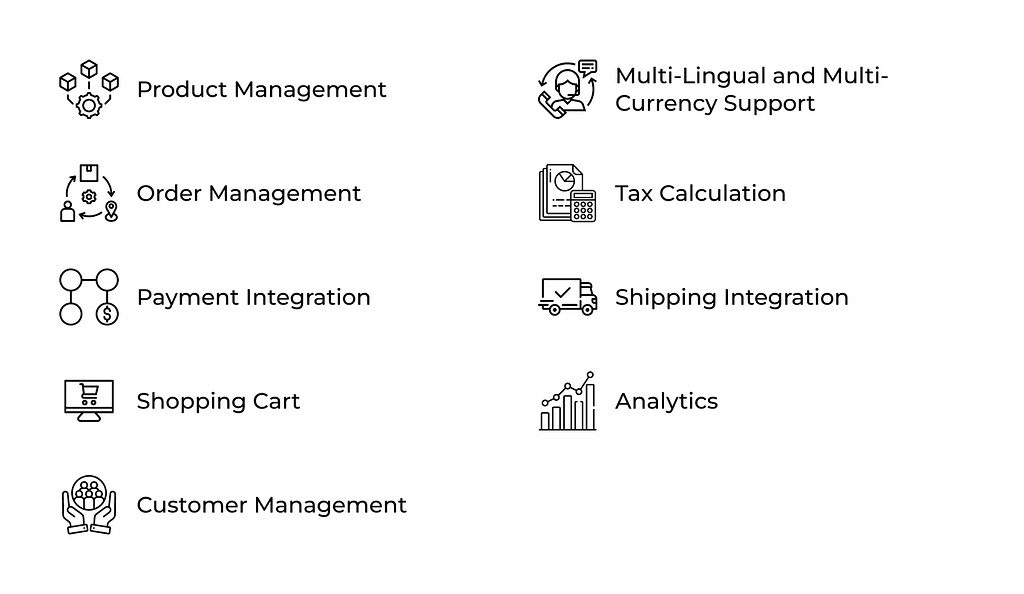
- Product Management – it allows you to add, remove, and update products, along with their details like description, price, and quantity.
- Order Management – it tracks the order status, it allows you to manage orders, and provides customer support with shipping and billing information.
- Payment Integration – it allows you to integrate various payment gateways into your platform like PayPal, Stripe, etc.
- Shopping Cart – it allows users to store products before purchasing them, and it automatically updates the product quantity and price.
- Customer Management – it allows you to manage customer data, such as shipping and billing address, order history, and account creation.
- Multi-Lingual and Multi-Currency Support – this feature helps to expand your business globally by supporting different languages and currencies.
- Tax Calculation – it calculates taxes based on the order and customer location.
- Shipping Integration – it allows the enterprise eCommerce platform to integrate with shipping services like UPS, FedEx, etc.
- Analytics – it provides statistical data of website traffic, customer behavior, and conversions.
Benefits of Enterprise eCommerce Solutions

While searching for a platform to build an enterprise site, check that it allows for the following:
- Scalability: Enterprise eCommerce software can handle high traffic and large volumes of transactions.
- Customization: It allows businesses to create customized eCommerce enterprise solutions that cater to their specific requirements.
- Integration: eCommerce enterprise software can seamlessly integrate with other systems, such as accounting software, revenue recognition software, inventory management, and financial systems.
- Omnichannel support: A good enterprise software platform will allow businesses to sell products across various channels, such as social media, marketplaces, and mobile platforms.
- Analytics and Reporting: Enterprise eCommerce solutions include advanced analytics and reporting features, which can help businesses track sales, monitor consumer behavior, and analyze marketing campaigns.
If the choice is done, but something is still missing, ask for integrating the required part from a reliable developer.
Types of Enterprise eCommerce Software
Depending on the chosen platform location, you may have one of the following types of the enterprise site:
- On-premise eCommerce software – This type of software is installed locally on the company’s server and is managed by the company’s IT staff. Examples of on-premise eCommerce software include CS-Cart, Magento and Oracle Commerce.
- Cloud-based eCommerce software – This type of software is hosted on the cloud and is accessed through the internet. Cloud-based eCommerce software is usually distributed by subscriptions and is maintained by the vendor. Examples of cloud-based eCommerce software include CS-Cart Enterprise, Shopify and BigCommerce.
The type of software will define its further scaling and modernization. Cloud-based platforms are considered as less customizable as on-premise open source solutions.
Based on the code ownership, one can select:
- Open-source eCommerce software – This type of software allows users to access the source code and modify it to fit their specific requirements. Examples of open-source eCommerce software include CS-Cart, WooCommerce and PrestaShop.
- Proprietary software – Closed source code refers to software that is not freely available for modification and distribution by anyone. It is owned by a company or individual who controls its use and distribution. This type mostly composed of cloud solutions which are less customizable as open-source analogues.
Regarding the purpose, the enterprise eCommerce software can be:
- All-in-one eCommerce platforms – This type of software provides a comprehensive solution for eCommerce businesses, including website design, sales tracking, inventory management, and payment processing. Examples of all-in-one enterprise eCommerce platforms include Shopify and CS-Cart.
- Limited functionality platform – A piece of software that is tailored for one purpose only. These applications are designed to meet specific business needs and are often cheaper and easier to use than their more comprehensive counterparts. Some examples of limited functionality enterprise software include accounting software, human resource management systems, and project management tools. These tools are designed to perform specific tasks and have a limited range of features and capabilities.
Speaking about the focus of the enterprise software, we can subdivide them into:
- B2B — B2B software is used by businesses to conduct transactions with other businesses, while B2C software is designed for businesses that sell products or services directly to consumers. Some examples of B2B enterprise software include CRM and ERP software, supply chain management systems, and business intelligence software. These types of software are designed to help businesses manage their operations, track inventory, and improve their overall efficiency.
- B2C — B2C enterprise software includes eCommerce platforms, mobile applications, and social media marketing tools. These types of software are designed to help businesses sell products or services to consumers, and to engage with their target audience through various marketing channels.
How to Choose the Right eCommerce Platform for Your Enterprise
When it comes to comparing enterprise software solutions, look at the specific needs of your organization and evaluate the software’s features and capabilities that align with those needs. However, some key areas to consider while comparing enterprise software include:
- Functionality: Compare the software’s functionality with other software solutions in the market. It’s essential to understand the software’s features and how well they meet your organization’s needs.
- Integration: Look for software solutions that are easy to integrate with other software systems your organization currently has in place.
- Scalability: Evaluate how well the software can scale with your organization’s growth and requirements.
- Customizability: Check how easily the software can be customized to meet your organization’s specific needs.
- Security: Review the software’s security features and ensure they meet your organization’s security standards.
- Cost: Compare the software’s pricing with other solutions that offer similar functionality and features.
- Support: Evaluate the quality of support and training provided by the software vendor.
- User-friendliness: Look for software solutions that are user-friendly and require minimal training to use.
To sum it up, when comparing enterprise software solutions, it’s crucial to look beyond their features and functionalities and ensure they align with your organization’s specific needs. Evaluation should also include factors such as scalability, customization, security, cost, and support before making a final decision. In many cases, partnering with an enterprise software development agency can help tailor solutions that better align with long-term business goals and operational requirements.
Best Enterprise eCommerce Platforms in 2023
We can recommend some popular enterprise software brands for large enterprise level companies. The list is presented below.
Salesforce Commerce Cloud

A cloud-based platform that offers comprehensive tools for creating personalized and seamless customer experiences across all sales channels. It has strong integration capabilities and provides a wide range of pre-built integrations with popular third-party systems, such as ERP, OMS, CRM, and marketing automation.
The platform functionalities include:
- Merchandising tools
- Customer data management
- Order management
It also has a robust API that allows for custom integrations, making it an ideal solution for enterprise-level ecommerce. The platform is designed to be highly scalable and can handle large volumes of data and traffic. Its architecture allows it to easily scale up or down to meet changing business needs. It uses a proprietary framework called SiteGenesis, which includes a robust API that allows developers to easily extend and modify functionality. Additionally, the platform supports popular front-end frameworks like React, Angular, and Vue.js, making it easy to build custom storefronts. The platform is very user-friendly: its intuitive interface allows businesses to easily manage their eCommerce websites.
Some examples of websites that use Salesforce Commerce Cloud include Adidas, Puma, Godiva, and L’Oreal.
SAP Hybris

An omnichannel platform that centralizes data and analytics, and offers a suite of tools for marketing, commerce, and sales.
The platform is known for the following features:
- Product management
- Order management
- Customer management
- Marketing and personalization
- Analytics and reporting
Extensions can be created using Java code and can be used to modify existing functionality or add new features. It can be integrated with various ERP systems like SAP ERP, Microsoft Dynamics, and Oracle ERP. It also has pre-built integrations with popular platforms like Salesforce, Adobe Experience Manager, and Marketo. A middleware solution called SAP Cloud Platform Integration (CPI) helps with integrating SAP Hybris with third-party applications. SAP Hybris is known for high scalability and flexibility. It can efficiently scale both vertically and horizontally, allowing businesses to handle sudden surges in traffic and transaction volumes. SAP Hybris uses a modular architecture, which makes it easy to add or remove components without causing system downtime. The Hybris platform also provides a powerful rule engine that can be used to customize business logic and workflows. Various security features protect the online store from cyber threats. Users are provided with technical support, bug fixing, and maintenance services. The platform UX is designed to be intuitive and easy, even for non-technical users.
The examples of websites that use SAP Hybris include Levi’s, Samsung, Ted Baker, and Toys R Us. These websites use SAP Hybris to provide a personalized and engaging shopping experience for their customers.
Oracle Commerce
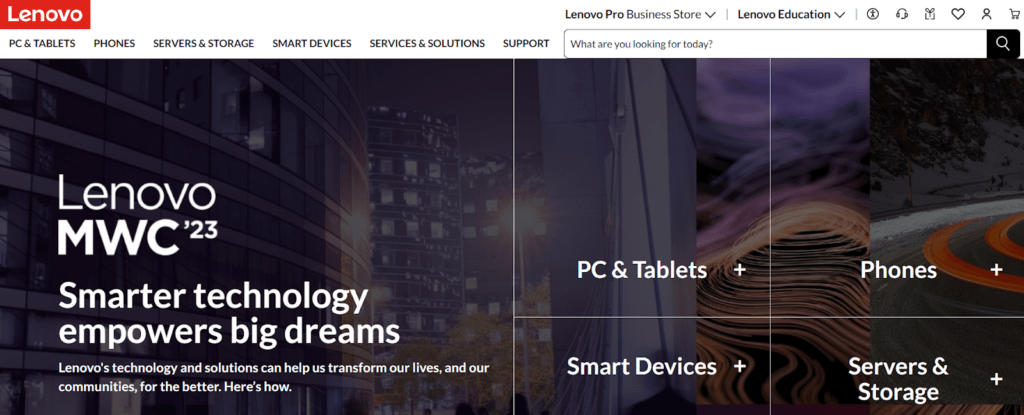
Oracle Commerce Offers a highly scalable and customizable platform that can be integrated with other Oracle tools, such as customer experience, marketing automation, and data management.
The platform functionalities include:
- Catalog Management
- Customer Segmentation and Personalization
- Cross-Channel Marketing
It allows for API integration, web services, and custom integration. The platform can be scaled horizontally by adding more servers to a cluster, or vertically by adding more resources to an individual server. To achieve scalability, Oracle Commerce uses a number of techniques such as load balancing, caching, and clustering. The flexible architecture and a rich set of APIs that enable developers to extend and customize the platform’s functionality to meet unique business needs. To ensure security, the platform applies user authentication and authorization, data encryption, secure communication protocols, and protection against common web application security threats. Users are provided with technical support, product updates, and access to knowledge bases and forums. Oracle Commerce is designed to be intuitive and easy to use, with a range of tools and features like drag-and-drop merchandising and personalization.
Some examples of websites that use Oracle Commerce include Lenovo, Best Buy, T-Mobile, Office Depot, and Home Depot. These websites use Oracle Commerce to manage their online stores, process payments, and handle customer orders.
IBM Commerce

A highly integrated solution that combines marketing, sales, and eCommerce capabilities, along with tools for analytics, customer insights, and artificial intelligence.
The platform has the following features:
- Marketing and merchandising tools
- Order management and fulfillment capabilities
It supports a wide range of integration methods, including APIs, web services, and messaging. It also provides pre-built connectors for popular applications, such as Salesforce, Marketo, and SAP. IBM Commerce allows for horizontal scaling, enabling businesses to add more servers to the system to handle increased traffic. It provides a flexible and modular architecture to tailor the platform to business specific needs. The platform security is ensured through access control, data encryption, and threat detection and response. As for user support, documentation, forums, and technical support are present here. The UI/UX is designed for easy navigation, with a focus on providing a smooth and seamless shopping experience.
Some of the popular websites that are powered by IBM Commerce are: Staples, L.L.Bean, Sears, Hertz, Best Buy, and Abercrombie & Fitch.
OroCommerce
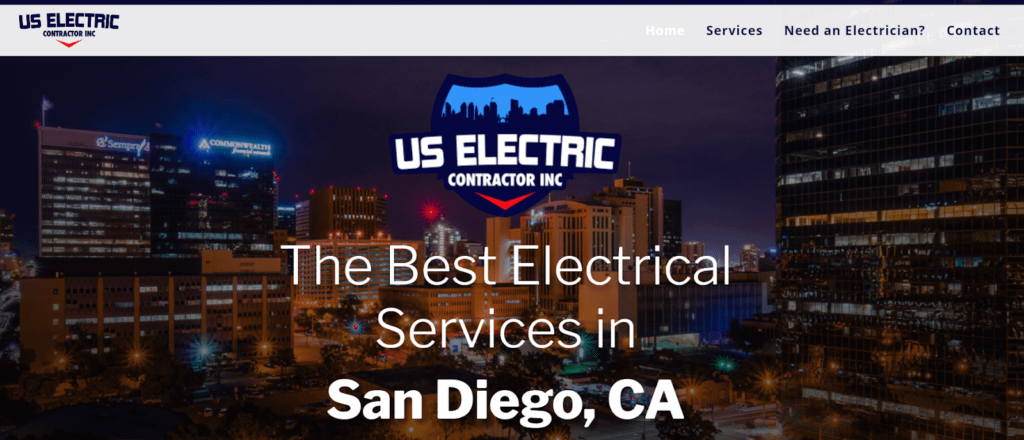
OroCommerce is an open-source B2B eCommerce platform designed for mid-market and enterprise-level businesses. It provides a wide range of functionalities to manage B2B eCommerce operations:
- Multichannel sales management
- Advanced pricing rules
- Customer and account management
- Product catalog management
- Order and inventory management
- Customizable workflows and business rules
- Integration with third-party systems
OroCommerce is highly customizable, offering a flexible architecture that allows businesses to tailor the platform to their specific needs. The platform is built on the Symfony framework, which provides a modular architecture easy to extend and customize. The system is designed to be highly scalable, with support for multichannel and multi-store environments. The platform can handle large product catalogs and high transaction volumes, making it suitable for businesses of all sizes. OroCommerce takes security seriously and includes a range of features to ensure that customer data is protected. These include role-based access control, data encryption, and support for PCI DSS compliance. The user support includes community support through forums and documentation, as well as paid support options for businesses that require more comprehensive assistance. The software UI/UX is designed to be user-friendly, with an intuitive interface that makes it easy for businesses to manage their online storefronts. The platform includes a range of features to simplify the management of products, orders, and customer data.
Examples of OroCommerce websites involve ABB, IMA Group, OMEGA Engineering, JCB, Rittal, Axalta Coating Systems, and the U.S. Electrical Services.
Adobe Commerce

Adobe Commerce (formerly known as Magento Commerce) is an eCommerce platform that offers a wide range of functionalities for online stores:
- Customizable storefront design
- Product management and inventory tracking
- Order management and fulfillment
- Payment and shipping options
- Marketing and promotions
- Customer management and segmentation
- Analytics and reporting
It offers a high level of customizability, allowing developers to customize various aspects of the platform to meet their specific business needs. This includes customizing the user interface, creating custom product attributes, and extending the platform’s functionality through the use of extensions and modules. The platform is designed to be highly scalable, capable of handling large volumes of traffic and transactions. The software’s modular architecture allows businesses to add additional servers and resources as needed to support growth. As for security, Adobe Commerce offers a range of built-in security features, including secure payment processing, SSL encryption, and protection against common security threats such as cross-site scripting and SQL injection attacks. Comprehensive support options fit businesses of all sizes, including access to a global network of certified partners and developers, as well as a dedicated support team for enterprise-level customers. Adobe Commerce is designed to be user-friendly, with an intuitive user interface and a range of built-in features designed to make it easy for businesses to manage their online stores. Additionally, the platform offers a range of integrations with popular third-party tools and services, further enhancing its user-friendliness.
Some examples of websites built on Adobe Commerce include Rebecca Minkoff, Sigma Beauty, Hellen Hansen, Nestle Nespresso, The North Face, and others.
Shopify Plus

Shopify Plus is a more advanced version of Shopify that is tailored towards high-volume merchants.
Some of the numerous features of the platform include:
- Multichannel selling
- Wholesale functionality
- Internationalization
It is a highly customizable platform that allows businesses to create unique storefronts and tailor their online shopping experience to their needs. The platform offers numerous customization options, including customizable templates, themes, and apps. Shopify Plus is also highly scalable, allowing businesses to easily handle high levels of traffic and sales. The platform can handle millions of transactions per minute, making it an ideal choice for large enterprises and high-volume merchants. In terms of security, Shopify Plus offers a high level of protection against cyber threats and data breaches. The platform is PCI DSS compliant and uses advanced security measures such as SSL encryption, two-factor authentication, and fraud detection. Shopify Plus also provides excellent support to its users, with 24/7 customer service and dedicated account managers. The platform offers extensive documentation, tutorials, and resources to help users get the most out of their online store. Finally, Shopify Plus is known for its user-friendly interface and intuitive design. The platform is easy to use and navigate, even for those with little to no technical experience. There are many Shopify Plus Agencies that can assist businesses in leveraging these security features while also customizing the platform to meet unique needs, ensuring both safety and seamless functionality for their online stores.
Here are some examples of websites built on Shopify Plus: Kylie Cosmetics, Gymshark, Allbirds, and Fashion Nova.
CS-Cart Enterprise
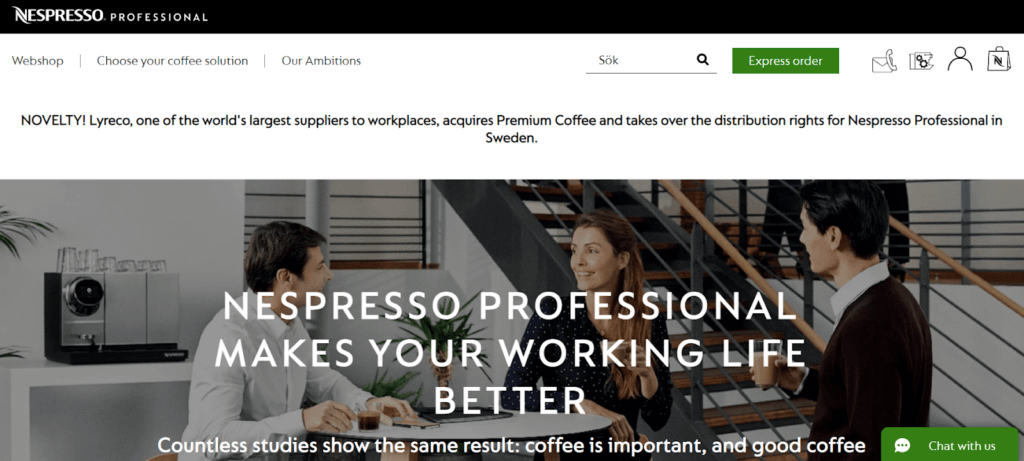
CS-Cart Enterprise is an eCommerce platform for large and medium-sized businesses.
The range of features includes:
- Advanced Product Catalog Management
- Advanced Order Management
- Multichannel Retailing
- Advanced Marketing Tools
It can be used as a headless platform for backend operations, making CS-Cart an ideal choice for large enterprise solutions. You can consider CS-Cart as the enterprise site’s eCommerce core and then connect other systems to complete the requirement based on your specific needs: ERP system to create a centralized hub and track all data in one place, CRM – for better handling of customer data, or another platform, depending on your preferences. The platform supports a wide range of integration methods, including APIs. It can integrate with various ERP systems, OMS, CRM. There are some pre-built integrations by default. CS-Cart Enterprise can be scaled horizontally by adding more servers to a cluster, or vertically by adding more resources to an individual server. It provides a flexible and modular architecture that allows businesses to tailor the platform to their specific needs. Various security features are provided to protect the online store from multiple cyber threats. Users are supported with a large community of users ad developers, plus 2,000 ready-made solutions, documentation, forums, and technical consultants. The design is intuitive and easy to use, even for newbies.
Enterprise eCommerce platform comparison
For your convenience, we compiled a comparison table of the best eCommerce platforms for large businesses mentioned above.
Top Enterprise eCommerce Platforms
| Feature | Salesforce Commerce Cloud | SAP Hybris | Oracle Commerce | IBM Commerce | OroCommerce | Adobe Commerce | Shopify Plus | CS-Cart Enterprise |
| Integration capabilities | Strong | Strong | Strong | Strong | Strong | Strong | Strong | Strong |
| Scalability | High | High | High | Medium | Medium | High | High | High |
| Customizability | High | High | High. | Medium | Medium | High | High | Medium |
| Security | High | High | High | High | High | High | High | High |
| Cost | 💰💰💰 | 💰💰💰 | 💰💰💰 | 💰💰💰 | 💰💰💰 | 💰💰 | 💰💰 | 💰💰 |
| Support | ✔️ | ✔️ | ✔️ | ✔️ | ✔️ | ✔️ | ✔️ | ✔️ |
| User-friendliness | 😁 | 😄 | 🙂 | 🙂 | 🙂 | 😁 | 😁 | 😄 |
If you made your mind about the platform, feel free to contact us for integration. We can safely connect systems, ensuring their seamless communication.
How to start the Replatforming Process to an Enterprise Solution
Apart from launching your online store from scratch, you can opt for replatforming your current web resource. Replatforming is a strategic decision to migrate an application or system from its current platform to a new platform. It is usually required when your current system doesn’t fit your business needs anymore or becomes legacy. The process involves choosing a new platform, migrating data, and updating the application to run on the new platform.
To start the replatforming process to an enterprise solution, you need to follow these steps:
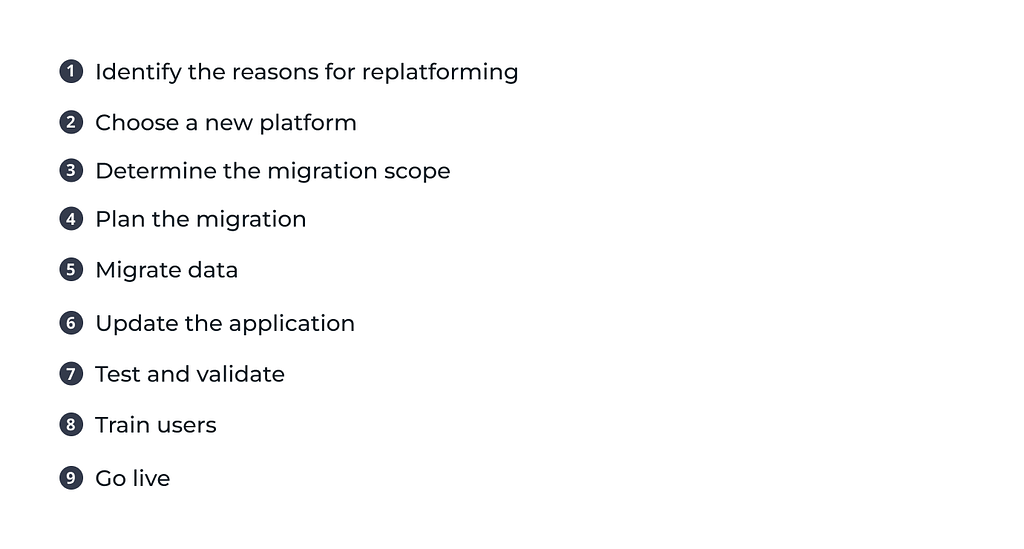
- Identify the reasons for replatforming – This involves understanding why you want to replatform, such as improving performance or reducing costs.
- Choose a new platform – Research and evaluate different enterprise solutions that meet your business requirements.
- Determine the migration scope – Decide on the extent of the migration, such as which systems or applications to migrate.
- Plan the migration – Develop a detailed migration plan with timelines, milestones, and contingency plans.
- Migrate data – Migrate data from the existing platform to the new enterprise solution.
- Update the application – Update the application to run on the new platform or develop a new application for the new platform.
- Test and validate – Test and validate the new application and platform to ensure they meet your business requirements.
- Train users – Train users on the new platform functions to ensure adoption and productivity.
- Go live – Go live with the new platform and applications.
Overall, replatforming to an enterprise solution requires careful planning and execution to ensure a successful migration.
Enterprise eCommerce Hosting Options
In parallel with choosing the tech stack of your enterprise site, entrepreneurs are selecting a hosting solution to base their project. Enterprise eCommerce hosting refers to hosting solutions designed for large scale online stores, marketplaces and websites. These hosting options offer features such as high scalability, dedicated servers, enterprise workload automation software, advanced security, and customized support.
Some of the popular enterprise eCommerce hosting options include AWS, Rackspace, Magento Enterprise Cloud, Shopify Plus, and BigCommerce Enterprise. There are also providers that take the responsibility of selecting the most appropriate hosting specifically for a particular case. This option is good for those who don’t want to dive into technical issues of handling high loads or rebelling cyberattacks.
For managed solutions, our company can offer high performance, scalable, and flexible hosting solutions that can handle any workload. They specialize in providing cloud infrastructure services, including virtual private servers, distributed cloud networks, and bare metal servers.
The Final Word
Simtech Development provides enterprise eCommerce development services, including development from scratch and replatforming online stores to build a turn-key enterprise level project.
We have experience in working with eCommerce platforms like CS-Cart or Laravel-based projects, and replatforming from Shopify, Magento, and other CMSs. We can provide assistance in migrating store data, designing a new website theme, and integrating third-party tools or plugins.

Need more details about Laravel-based development?
In addition, Simtech Development can help with custom eCommerce development, such as building new features or modifying existing ones to fit the new platform. This can help to ensure a smooth transition to the new eCommerce platform and maintain the functionality needed for the business.
Overall, Simtech Development can provide the technical expertise needed to successfully launch an enterprise level business.
